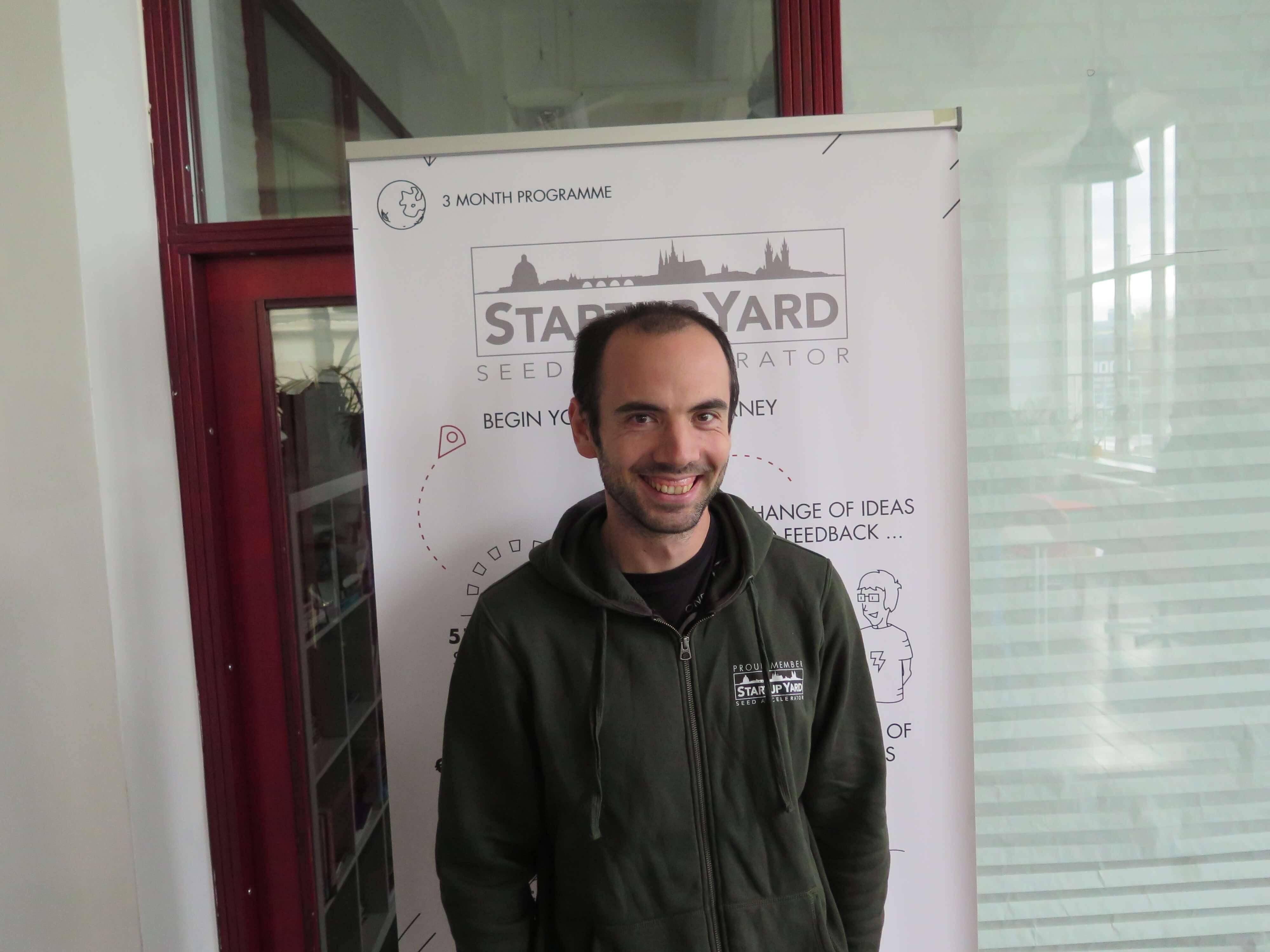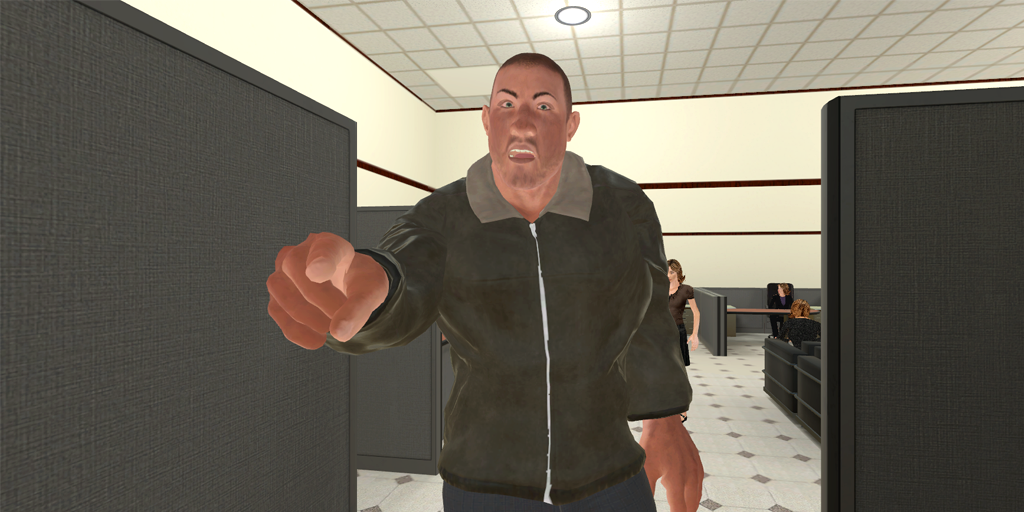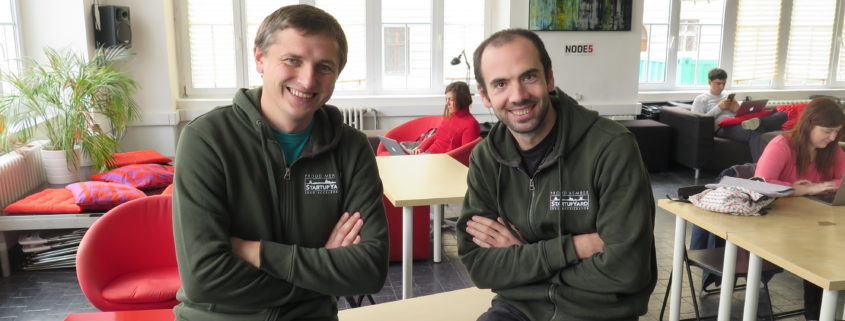Meet Mindbox: The Future of Sales Training is Virtual Reality
Mindbox is every sales coach’s dream. It’s a Virtual Reality (VR) platform that allows sales trainers to create unique, repeatable, and data-enriched training activities in a virtual environment.
The team behind Mindbox, who join StartupYard as members of Batch 8, are Slovak entrepreneurs Peter Tomasovic, and Andrej Rybovic, old friends who have been VR geeks for many years. Originally, they began work on Mindbox as a tool for psychotherapists to treat anxiety disorders and phobias. Quickly they realized that anxiety and stress are widespread outside the clinical setting, and they set about looking for solutions to occupational challenges that many typical employees in large companies face every day.

I sat down with Peter to talk about how Mindbox became a toolkit for the sales trainer of tomorrow:
Hi Petr, tell us a bit about your team, and how you came up with the idea for Mindbox.
Hi Lloyd! Mindbox started out as something very different from what it has become over the course of StartupYard. It all got started two years ago, when I was just playing with VR (Virtual Reality) technology, and a few of my friends were finishing school in psychology. One of them is a clinical therapist now, and the other is a researcher at the Slovak Academy of Sciences.
We are childhood friends, so we started mixing our interests; I came up with some ideas on how to use VR in the context of therapy, and they provided a lot of insight into the kinds of problems that are hard to solve with classic talk therapy.
For example, one thing that’s very hard to treat by talking is a phobia. You need to experience the phobia in a controlled way, and it can be hard to do in a clinical setting. You can’t take a patient to the roof if they are afraid of heights. There is no way to do it in a controlled manner- at least not affordably.
Another thing was anxiety disorders. It’s the same problem: it is very hard to control the process of exposing someone to their anxieties so they can confront them. So MindBox grew from these conversations, and we decided to make it a real thing. We built several “phobia” modules, and even did some testing on real patients, where we found the therapies were really helpful, and sped up recovery.

You’ve pivoted away from therapy to sales training. Can you tell us about that shift?
The experience we gained helping people overcome fears is still at the core of what we do. However, we also realized after talking to mentors and industry experts at StartupYard, that staying within the medical context would be very limiting to our ability to have an impact on people in the real world.
With sales training, you can address many of the same issues as with psychotherapy, but you can help many more people overcome their personal limitations. The benefits of VR are still there: it is safe, controllable, easy to repeat, etc. That can work for a lot more than just a fear of heights.
Currently, sales training techniques are quite good, but they require a lot of setup. Role-playing and workshops with hands on feedback are time consuming, hard to repeat, and are likely to be forgotten over time.

An angry customer in Mindbox
Research shows that after several months, the effect of a training session mostly disappears. If you could follow up on that with controlled re-training and repetition, the insights could be preserved and the training would stick.
A big influence was our new colleague, Serge Dupaux, a former sales training director with a ton of industry experience, who has helped us see the impact VR can make on that kind of work.
So now, MindBox is platform, that allows sales trainers to create VR training modules without coding. Our aim is to make it so easy to do, that an experienced sales coach can let their imagination run wild, and construct really unique challenges that can be shared and repeated even in really large organizations. Mindbox will be the non-coder’s tool for creating those VR training experiences quickly, and getting necessary feedback in the form of analytics, scoring, and other data.
What about VR makes it ideal as an addition to in-person training? Why not simpler methods?
There are easier ways to follow up on training, such as with e-learning, and periodic testing. But these are mostly about knowledge, and not experience.
Typically a sales trainer spends a lot of time simulating situations with the salesperson, doing role playing, and rehearsing strategies. That is quite personal, and can be affected by relationships, the moods of the people, and even the weather or time of day.
If you can add VR as a supplement to this training, then you can eliminate some of these variables and reinforce the important elements of the training. All the salespeople have a chance to work at their best, and experience the same quality of feedback and the same sense of immersion.
With traditional testing, you check knowledge. Here VR can be used to check attitude, comfort levels, and other soft skills that don’t appear in other tests.
How do you see VR becoming a broader part of how we do skill acquisition in companies, or even in schools? What will things look like in 5 years?
Our vision for VR at MindBox is about making it a regular part of somebody’s work life. It’s not just about sales training, but also skill assessment, team building, and skill extension and retraining.
Lloyds Bank already uses VR to assess employees, for example. I think this will happen much more. Of course the benefits of VR assisted training are clear also in dangerous jobs, like firefighting and police work, or in medical training. Already we use very sophisticated flight simulators to assess and train pilots.
I see VR training being a fact of life in 5 years. Everyone will see the benefits and the impact it can have. It will not be everything, but it will be a common tool.
That is why it’s important to us today to create a platform where the most creative uses of this technology can be invented and put in practice quickly, to move VR out of the geek basement, to the mainstream.
Short term, what are the biggest technical challenges facing MindBox, and how do you plan to solve them?
The big problem nowadays is finding good people – technical people. We are looking for Unity3D developers, and it is very hard to find them. At MindBox, we are not looking for “just” an employee or someone who wants to try to work for startup. We are looking for a friend, team member, and a developer with ideas.
How has your experience been at StartupYard? What has surprised you, or particularly challenged you as a founder?
The experience at StartupYard was groundbreaking for us.
It has changed the life of MindBox and the whole team. First of all, we found not only mentors, but also friends, passionate people who are helping us and who are pushing us forward.
Most surprising for us was the team and mentors’ will to help. They don’t just introduce you to someone, they care about your progress and they are come up with ideas to help you as a business and a person. I have never seen something like this.
For us, StartupYard is something, like university and business school in 3 months. We definitely recommend it to every startup, because StartupYard can save you years of work.
How can people get in touch and see how MindBox works for themselves?
Right now, MindBox is in private beta. Trainers or companies can contact us and it would be pleasure for us to meet with them and talk more about VR and how VR can improve the effectiveness of their current sales training programs.
Applications are open for StartupYard Batch 9!
Are you a startup, or an entrepreneur with a great Deep Tech idea?
Applications are now open.




